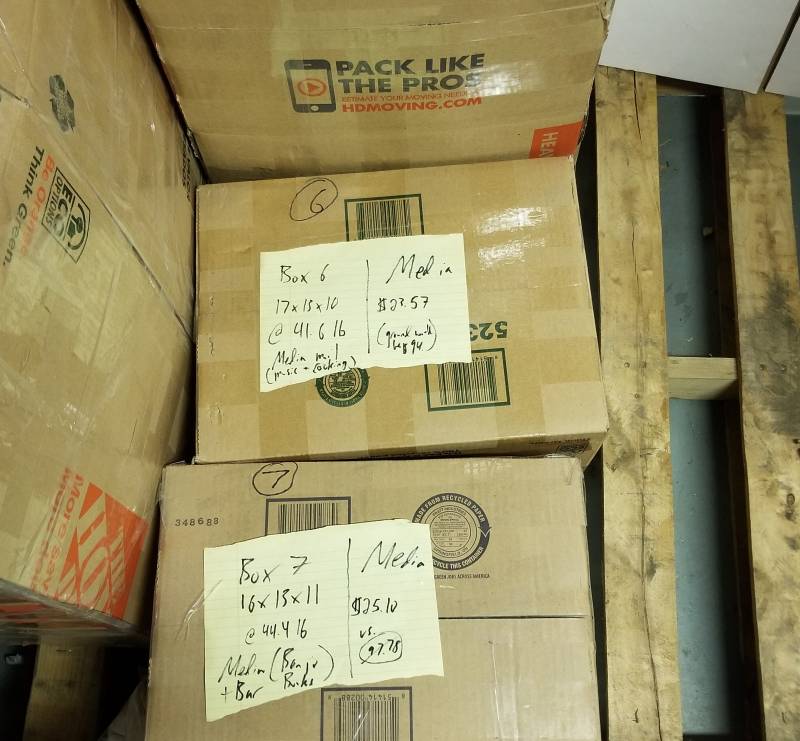How Do You Sell Your Property in Hawaii to Buy on the Mainland?
How to Coordinate a Sale in Hawaii with a Buy in the Mainland: 6 Essential Tips
Selling a home in Hawaii to buy in another state is tricky in quite a few ways, both on the transactional side and on the logistical side. There are a lot of moving parts, and without some help along the way these parts can be confusing for many folks. There is a reason that relocation companies make great money helping folks move. This guide is meant to give you a primer on what to expect when you sell in Hawaii to buy on the mainland. Each transaction is different from the next, so if you have particular questions, just shoot me a call or a text at 808-818-8811, or shoot me an email at joeyfurlett@hawaiilife.com and I will be glad to assist. I’ve helped over 1,500 sets of clients with their real estate needs as an attorney,* so I should be able to assist you with any questions you have on your sale! (*Please note that I am not an attorney in my role at Hawaii Life, but I apply my legal background to helping my realty clients.)
My philosophy is simple: “I do as much as I can to make the process as simple as possible for you.” This guide is part of that philosophy.
So, what are the steps to a smooth sale in Hawaii with a buy on the mainland?
1. Find a Realtor-Broker Experienced in Complex Multi-State Sales
You need an experienced Realtor (or attorney) to help you. When I talk about experience, I mean not only the number of years that someone has worked in real estate, but also the quantity and quality of transactions that a realtor has done. I know I am in a pretty unique category having done over 1,500 transactions between my careers, but you want to make sure that the realtor you hire has the experience to match your needs. You do not want to be the “first-time test subject” on a multistate, multi-party sale because they can go very wrong and very badly. If the transactions are handled incorrectly you could easily be sued on your buy-side transaction for the mistakes on your sale. If you happen to be military, this is all the more important, because you do not want to risk a housing crisis in a PCS move to the mainland.
2. Make Sure Your Buy Contract and Sell Contract Match Each Other
Because you are writing two contracts in two different states, with different rules and different “Board Form Contracts” (Contracts that are accepted by a local realty board within each state, the process of matching up a buy-side contract with a sales contract can be tricky. If you are writing a buy-side contract, make sure the dates and contract conditions match up properly. In Hawaii, the standard number of days for a closing to occur is a 30-day contract to close with a 15-day unilateral extension that can be used by the buyer for a conventional loan, and if the buyer is using a Jumbo Loan, an FHA loan, or a VA loan the standard contract dates are usually 45 days to close with a 15-day unilateral right of extension by the buyer. For a cash transaction, you may be able to close in less than 30 days–my fastest cash transaction took about four days to close. In other states, there are not always unilateral rights of extension, which can complicate things. If the contracts for your sale and your purchase do not match up, you could end up with a huge gap between the day you sell, and the day when you can actually move into your purchase on the mainland.

3. Get Packing and Shipping
An experienced Realtor should be able to help you figure out the best way to get your car and any other items to the mainland. The main two things that folks usually ship are cars and personal possessions. If you decide you need help moving I am glad to give you more targeted information, but here is a bit of information on shipping things:
Shipping Cars:
For various reasons, I have needed to ship my car back and forth to the mainland a few times. The process, if you are not familiar with it, can be a real pain in the rump. When I help folks on cross-country moves I always make sure to assist my clients with information on which car shipping companies they should use, and how they need to prepare their car to transport. There are only really two main shippers to and from Hawaii to the mainland, Pasha and Matson. However, these companies both ship on their own and through subcontractors. Often, based on your final destination, it may be more economical and advisable to ship through a subcontractor.
Shipping Small Objects:
Shipping possessions can be even trickier than shipping cars if you are on a budget. Many folks swear by small containers, but I have successfully shipped things using alternative methods for far less money than many small containers or half containers cost. So how have I moved my things back and forth? Well, I have turned to mailing my possessions when I have gone back and forth from the islands. This involved some careful packing and even some custom box cutting for certain objects and using carefully packing techniques for the rest of your objects. The USPS has very specific guidelines on shipping packages, including a weight limit of 70 pounds and a maximum package length+girth of 108 inches, which makes shipping techniques quite important. I will write another article in the future about this topic, but it is a tad complex for this short overview. That said, with careful packing you can save several thousand dollars moving via the mail.
Shipping Furniture:
If you are sending furniture, however, things can get very expensive very quickly. Many end to end container companies charge a minimum of $5,000-10,000 depending on container size, and the further you are moving from Hawaii the more expensive it will be. Even small U-Haul containers usually will cost more than $4,000.000 to move. Even so, an experienced Realtor-Broker who si familiar with these sorts of logistical nightmares may be able to give you good insight on how (or maybe whether) it is a good idea to send your furniture to the mainland with you.
4. Always Have a Backup Plan
Sometimes, despite the best efforts of your Realtors in each state, weird things happen. Because of this possibility, you should always make sure that you have a backup plan on your cross-country move. If something strange happens in the transaction, you may need to locate a temporary place to stay, and you may also need to find temporary storage for your possessions. An experienced Realtor can assist, particularly where the Seller uses a known relocation team along with the Realtor. Here at Hawaii Life, we have ties with realty companies around the country where your Hawaii-based realtor can be more closely involved in your buy-side transaction. The goal here, again, is to make the moving process as easy and painless as possible. And part of that is making sure that there are backup plans in place for the odd problems that may arise.
Now, you are probably asking…What “weird” things could happen to delay a Buy-side transaction:
A few odd things I have personally seen in my time in real estate:
- On a full cash sale, the banker who had the physical “digital key” to authorize the wire transfer left on unexpected sick leave and forgot to leave behind the key
- The lender got into a car crash and was unable to process the loan
- The Seller in transaction #2 had an unexpected property judgment pop up in the title and the attorney needed to clear this title condition by filing a court case to solve the title problem
5) Have a Realtor Who Knows How To Work With Out-of-State Lenders and Escrow Companies
A major part of selling to buy in another state is that the Seller’s realtor will need to coordinate with the lender and title company on your purchase. If that sounds a bit backward, then let me explain: When you sell, you need to have the proceeds (The money you get from selling the house) sent to the next closing for the purchase to happen. Oftentimes, this will mean that the money will need to go to an escrow company or a title company (unless your second transaction is a more complex commercial purchase, where sometimes bank intermediaries get involved). The real kink here is that each state has different rules and regulations regarding where monies need to sit before the closing, some states have no attorneys, some have attorneys involved in all stages of the transaction, and some have a single attorney who theoretically represents both parties. Your realtor should help you figure out how to navigate this mess. And when it comes to sending the proceeds, the realtor should be able to help guide you on where the money should go in order to smoothly help you do your second transaction. If the money doesn’t arrive for the next closing, it can cause all kinds of headaches.
6. If You Are Off-Island, Made Sure Your Realtor Knows How To Coordinate Remote Signings
This probably sounds like a silly thing to talk about, but you would be shocked how many folks do not know how to do a remote signing, especially when you are on the mainland or are living internationally. If you are out of the country, your Realtor can helo put you in the right direction. The trickiest part of the whole process is just getting the deed signed correctly, especially if you have sellers in more than one state. However, again, your realtor should be able to guide you through the process. If you want more information on remote signings please reach out 🙂
Special Note for Overseas Military and Other Folks Living Internationally:
Scheduling signings can be tricky if you are overseas, but luckily I have even helped people sign papers from countries without US diplomatic relations. It takes a bit more prep, but we can get it done. If you need assistance with your sale, I will be glad to help you with figuring out the signing process. Just shoot me a call or an email.
About the author:

Joey Furlett, JD, R(B), REI
As I alluded to in the intro, I wear a couple of hats in the real estate world. I have dual careers as both a Realtor and a real estate attorney,* and I have been helping folks with complex multi-state real estate transactions for years. I work on both residential and commercial transactions and I am proud to say I’ve helped over 1,500 sets of clients through the real estate process as an attorney. Please note, again, that I am not an attorney in his role at Hawaii Life, but I apply my legal knowledge as a Realtor to make the process easier and smoother for his clients. Because of the sheer number of transactions I have helped guide clients through, I usually have a good insight into the best ways to coordinate complex transactions with multiple parties in multiple states. After 1,500 transactions there isn’t much you haven’t seen. In fact, I often get calls from other real estate professionals looking for advice. If you want to read more about my background, please check out my realtor profile at www.hawaiilife.com/joeyfurlett
A Personal Note from the Author:
Dear Reader,
Thank you for taking the time to read my article. I hope this guide helps you understand the process of selling a home in Hawaii to move to the mainland. I always enjoy guiding folks through the home sale process, and if you need assistance I am happy to help. Often, the process of selling a home can be quite complex, and my goal is to simplify the process. If you want to talk to me about selling your property and coordinating a buy on the mainland, here is my contact information:
Click here to call me at 808-818-8811
Click here to send me an email: joeyfurlett@hawaiilife.com
Cheers and Aloha,
Joey Furlett, JD, Realtor-Broker
RB#23572 | Hawaii Life
Insta: HawaiiHome8 | Wechat: HawaiiHome8



Leave your opinion here. Please be nice. Your Email address will be kept private, this form is secure and we never spam you.